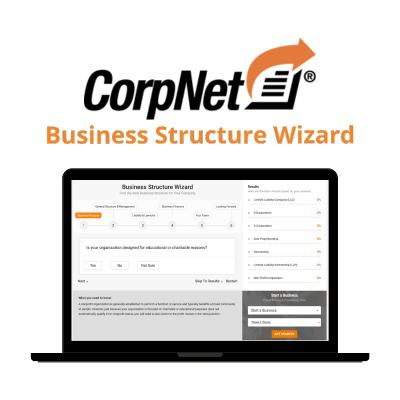About 4.1 million Americans will turn 65 in 2024, signaling the start of what’s being called the “Peak 65” zone. By 2030, all baby boomers (people born between 1946 and 1964) will have turned 65, a common age for retiring. While many people view retirement as a goal to be achieved, not everyone is ready to stop working when they turn 65. Surveys show that many seniors are worried about having enough money saved to see them through retirement. A recent AARP survey revealed that 33% of respondents reported not having enough money saved for retirement, while another 31% are not sure if they’ll have enough. Other people simply don’t want to stop working when they turn 65 because they enjoy the benefits work offers, including income, a sense of purpose, and camaraderie.
One option for retirees with financial concerns and retired people who just aren’t ready to stop working entirely is to start a business. Retired people, with expertise and knowledge that comes with life and work experience, are often excellent entrepreneurs. In fact, according to the U.S. Chamber of Commerce, many seniors are passing on retirement, opting instead for what’s referred to as “encore entrepreneurship.” So many have taken that route that seniors are now more likely to be working for themselves than any other age group.
Which side hustle is right for you? Let’s review some options for selecting a niche and cover the steps you need to make that new business legal.
What Type of Business is Good for a Retired Person?
The type of business a retired person might consider starting depends on personal interests and abilities, what kind of hours they want to work, how much they hope to earn from the business, if they want to work from home or have office or retail space, and other factors.
Most retirees who start their own businesses look for something with low start-up and operating costs. That may mean choosing something you can do from home or in a public space that doesn’t require paying for rent or utilities.
Here are some great business options to consider:
- Bed-and-breakfast owner – If you’ve got suitable space and a talent for hosting, a B&B could be a good choice for a business. The B&B industry generates more than $45 billion a year and, according to industry analysts, is continuing to grow. While owning and running a B&B can be fun and rewarding, be aware that you’ll encounter startup and operating costs, including licenses and permits.
- Project-based consultant – Consulting is a popular business choice for retirees who can use their accumulated skills and knowledge to help clients. Some common consulting businesses include accounting; advertising, marketing, and public relations; auditing; HR consulting; grant writing; research; project management, sales management, writing and editorial consulting; career counseling; and tax consulting. Some companies hire their recent retirees to serve as consultants. Starting a consulting business would provide a chance to use your contacts to find clients, and you can choose with whom and how much you want to work.
- Crafter – If you love to knit or crochet there is a world of opportunities waiting for you in retirement. As eco-friendly goods become more popular, handmade goods are taking Etsy and other marketplaces by storm. From hats and mittens to blankets and sweaters, there are many opportunities to sell your crafts directly to consumers or to small business owners for resale.
- Franchisee – Franchising is a huge industry in the United States, with about 805,500 franchise establishments operating throughout the country in 2023, according to Statista. It’s a popular business model because it offers an established business with built-in brand awareness. Typically, a franchisor (the party that owns the established business) will supply a franchisee—the party that buys into the established business—with a business plan and marketing and promotional materials. While fast food might come to mind when you think about franchising, other popular franchises are found among industries including fitness, childcare, senior care, auto repair, pet services, coffee shops, and technology. Be aware, however, that some franchises require a very high initial investment, up to $1 million for a franchise such as Dunkin’. Other franchises require much lower initial investments. If you’re considering opening a franchise, it’s advisable to seek legal counsel and consult an experienced accountant or tax advisor.
- Academic tutor – Tutoring can be a great match for someone retiring from teaching or school administration. Start-up costs are minimal or non-existent, you can set your own hours and rates, work in person or virtually, and continue to make a difference in the lives of young people. Some retired teachers offer general academic support for students while others specialize in college prep assistance or helping students prepare to take SAT or ACT tests. Rates for tutors average between $25 and $80 an hour, or more, depending on location and subject matter.
- Photographer – Perhaps you’ve long enjoyed photography as a hobby and are looking to leverage that interest into a business. The field of photography is huge, ranging from weddings to baby or pet portraits to product shots for e-commerce. A distinctive digital portfolio and strong social media presence are important elements for showcasing your work.
- Tour guide – If you enjoy interacting with others and live in an area with interesting architecture, numerous sports facilities, a variety of ethnic restaurants, a burgeoning arts scene, or fascinating historical sites, a local tour guide business could be a good fit. There are tour guide training courses available that offer certifications to those who complete them, giving you a chance to boost credibility and learn the ropes from professionals.
- Pet sitter – Animal lovers can find success with a pet sitting business. It’s a fast-growing market, as pet ownership is on the rise and people are willing to spend more on their pets. Pet sitters average $25 for a 30-minute visit and up to $75 for overnight stays. Pet sitting also offers the advantages of physical activity and companionship. Someone interested in pet sitting can complete online training and a certification course from the National Association of Professional Pet Sitters.
- Handyperson – If you’re handy with tools, a handyperson business could be a good fit. Demand for services is high, and, according to Angi, the average hourly rate for a handyperson is between $50 and $150 an hour. You’ll need knowledge, expertise, and the necessary tools and equipment to get started, but news of handyperson services often spreads by word of mouth, meaning your marketing efforts may be minimal. You also can advertise your services on local neighborhood sites or websites like Angi or Task Rabbit.
- Patient advocate – Retirees from the health care or health insurance industries can provide patient advocacy services for those dealing with medical issues or insurance or billing challenges. In addition to being profitable, patient advocacy can be an invaluable help to someone dealing with a diagnosis or other medical situation. Certification as a patient advocate is available through Patient Advocate Certification Board.
- Event planner – Event planning is a rapidly expanding industry, with a predicted growth rate of 18% between 2020 and 2030. The field is wide, including corporate meetings, weddings, wellness retreats, anniversary parties, and so forth. You’ll need to be able to focus on details, communicate effectively, offer a high level of accessibility, and excel at problem solving to be an effective event planner. Once you’ve gotten started, you can use reviews and referrals to attract more business.
Important Steps to Get Your Business Going
Starting a business as a retiree isn’t much different than starting a business at any other age. You’ll need to follow some steps and take certain actions to make sure your business is set up properly and operates in compliance with state and local requirements. Before you do any of those things, however, take some time to determine if there’s a big enough market to support your business idea.
1. Conduct Some Research
Market research is simply the process of gathering information about your target audience. You’ll want to ensure that enough people will want to purchase your products or services to allow the business to succeed. If no one in your neighborhood has a pet, for instance, you might want to reconsider a pet sitting business unless you’re willing to travel. Market research includes looking at how much competition you’ll have, where your customers are based, and what they’ll be willing to pay for your product or service.
You can get this type of information from industry reports, demographic information, or economic reports, or you can conduct direct research by going right to potential customers. Use surveys, focus groups, or questionnaires, or interview potential customers about what they’d like a company to offer. Market research doesn’t have to be overly complicated or difficult, but it’s important to get a feel for how your business idea will be received and be able to gauge whether there’s a big enough customer base to support it.
2. Put Together a Business Plan
Regardless of your career experience, having a business plan in place will serve as a roadmap as you start and grow a small business. Every business plan is different, but most contain an executive summary, the products or services you’ll offer, a market analysis based on your market research, a marketing strategy, sales projections, and a budget.
If you’ve never written a business plan, don’t worry. There are a lot of resources that can help. Start with the tried-and-true Small Business Association (SBA), a cabinet-level U.S. federal agency dedicated to promoting small businesses. You can find information about writing a business plan and examples of plans on the SBA website.
3. Figure Out Your Financing
Paying to start a business in retirement can be a tricky proposition if your start-up costs are high. Some people use money from their 401(k) to finance a business, which is okay if the business succeeds, but a potential disaster if it doesn’t.
You could apply for a small business loan from a bank or credit union but be sure to look around to find the most favorable terms. Or you could consider bringing a partner into the business to share costs.
Most financial advisors probably would tell you to identify a business that has low start-up and overhead costs and doesn’t require excessive amounts of cash for licenses and permits. I’d advise you to always consult your financial advisor and tax advisor before using personal funds to start a business.
4. Pick a Name for Your Business
Choosing a name for your business requires some consideration. If you decide to operate as a sole proprietor, which I do not advise, you’ll need to file for a DBA (or doing business as) if you plan to call the business anything except your full, legal name. The rules for getting a DBA vary by county and city, but generally, you’ll need to complete some paperwork and pay a filing fee with your county or state government. You may also be required to place a public notice in a local newspaper or other publication.
If your business will run as an LLC or Corporation, you’ll need to find a name that isn’t already in use in your state. That entails conducting a name search through the Office of the Secretary of State or corresponding agency in your state. It’s also recommended that you conduct a trademark search through the United States Patent and Trademark Office to make sure the name is not trademarked in any of the 50 states. And you’ll need to follow some naming requirements as set by your state.
In addition to navigating the legal implications of naming your business, you’ll want to find a name that identifies it and can serve as the basis of the brand you’ll build. Once you’ve chosen a name and confirmed it is not already in use, you can reserve it with your state.
Keep Learning: Ten Tips for Creating a Business Name
5. Select a Business Entity Type
You’ll have some options when considering what type of business structure to use. The simplest way to operate is as a sole proprietor, which simply means that you, or you and your spouse, act as sole owner and operator of the business. If you and a partner other than your spouse start a business and serve as sole owners and operators, the business is known as a General Partnership. Sole Proprietorships and General Partnerships are not registered with the state and are not considered formal business entities. Nor are these types of businesses taxed separately from their owners. You’ll simply report business income or loss on your personal tax return.
The big downside to operating as a Sole Proprietorship or General Partnership, of course, is that there is no legal distinction between the business and its owner, and no separation between business and personal assets. If you’re faced with a claim or lawsuit brought against your business or incur business debt you can’t repay, you’re personally responsible and your personal assets are at risk. That can be devastating for anyone, but putting your hard-earned assets at risk when you’re at retirement age could result in a worst-case scenario.
A better way to go is to form a Limited Liability Company (LLC), which is a legal entity, registered with the state and independent of its owner or owners, which are known as members. An LLC can have just one member, known as a single-member LLC, or more than one member, known as a multi-member LLC. LLCs are, by default, taxed like Sole Proprietorships or General Partnerships, although you can elect to have your LLC classified as a Corporation for tax purposes. While there are some advantages to being taxed as a Corporation, most LLCs opt to not do so to avoid the problem of double taxation, which occurs when both the corporation and its shareholders, or owners, are taxed on any income they receive.
The huge advantage of an LLC is that it provides a legal barrier between creditors and LLC members, which protects your personal assets. If the business is sued or creditors are attempting to collect from it, only the assets of the business are at risk.
While operating as an LLC makes sense for most entrepreneurs, some may choose to form a Corporation because it can offer some tax advantages and other benefits while also protecting the personal assets of its owners. Forming a Corporation is more complex than registering as an LLC, often requiring a lengthy application process and substantial fees. And owners must comply with legal requirements such as having a board of directors, holding regular meetings, and filing annual report.

Choosing a business structure can be a tough decision for the new business owner. CorpNet wants to make the process easier.
This free, online tool helps small business owners navigate the process of picking the right business structure for their new business.
6. Register the Business
This step is unnecessary for a Sole Proprietorship or General Partnership, which as you read, are not registered with the state. If you’re setting up as an LLC or Corporation, however, you’ll need to file paperwork with the Secretary of State to register your business. An LLC submits Articles of Organization, while a Corporation files Artiles of Incorporation. You’ll need to pay initial fees to register an LLC or Corporation and ongoing fees to remain in compliance with the state. Most states require LLCs and Corporations to file annual reports and meet certain other requirements.
Rules for registering a business vary from state to state, so it’s important to get as much information as you can from the website of the Office of the Secretary of State. Follow instructions carefully, as mistakes can prolong the amount of time it will take for your business to get up and running, or even result in legal complications.
7. Obtain an Employer Identification Number
Having an Employer Identification Number (EIN) is important, even if you don’t have a single employee. An EIN serves as a means of identification for a business, much as a Social Security number does for an individual. You’ll need an EIN if you’ll be filing business taxes separately from your personal taxes, or if you want to open a company bank account or apply for credit.
You can apply for an EIN online by filling out IRS Form SS-4. You’ll need to have a valid taxpayer identification number, such as a previous EIN or a Social Security number, to file the form. If the application is completed correctly, you should receive your EIN immediately after submitting the application. There is no fee for getting an EIN.
8. Apply for Any Necessary Licenses or Permits
Many types of business are required to have licenses or permits of some type. Some business operations, including agriculture, alcoholic beverages, commercial fisheries, and radio and TV broadcasting, are regulated by federal agencies and require a federal license or permit.
More commonly, a business is likely to need licenses of permits from the city, county, or state in which it operates. You’re especially likely to need a state license if your business is one of these:
- Beauty shop
- Childcare center
- Dry cleaning shop
- Electrical business
- Insurance agency
- Mechanic shop
- Plumbing business
- Restaurant or food truck
You’ll need a professional license if you work as a lawyer, therapist, accountant, or veterinarian, and you might be required to have a license or permit for actions including hanging a sign outside of your business or collecting sales tax. Consult your state’s website to learn what state permits and licenses are required, and check with your county and city offices to see if anything more is needed.
9. Open a Business Bank Account
Regardless of the type of business you decide to start or what business structure you employ, keeping your business and personal finances separate is extremely important. You should open a small business bank account, keep your personal and private funds in two different accounts, and use separate checking accounts.
You also should get a business credit card and use it for everything you charge that’s business related. This will allow you to track expenses, analyze spending, and build your business credit, while also making it easier at tax time as you won’t have to separate your business and personal expenditures.
Wrapping it Up
Starting a business as a retiree is just as exciting as starting a business at any other point in life and if you’ve decided to do so, I applaud you! While I’ll tell you first-hand that entrepreneurship requires time, dedication, and a lot of hard work, it’s also extremely rewarding and allows you to pursue your interests and passions.
Take the time you need to think through your ideas and get your business up and running on the right foot. Make sure you follow all filing requirements and take the steps necessary to file properly and remain in compliance once your business is underway. Avoid any potential legal complications by making sure you adhere to all the rules of your state, county, and local municipality. And if you’re opting in for encore entrepreneurship, enjoy every minute!




